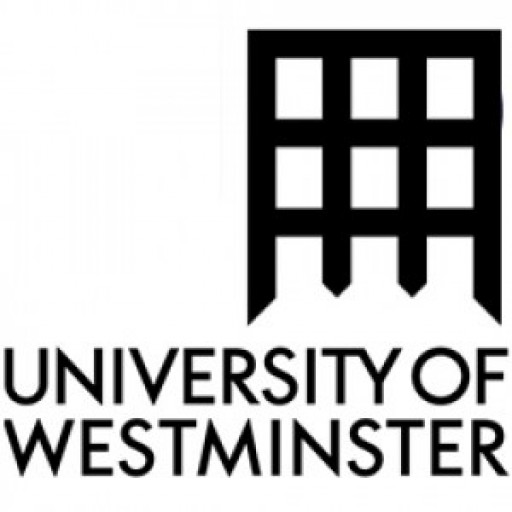Photos of university / #ucl
The Bachelor's degree program in Chemistry with Management Studies at University College London offers a comprehensive and interdisciplinary learning experience designed to equip students with a solid foundation in chemical sciences coupled with essential management skills. This innovative course combines rigorous training in chemistry, including organic, inorganic, physical, and analytical chemistry, with a strong emphasis on developing leadership, organizational, and strategic management abilities. Throughout the program, students will engage in a variety of laboratory experiments, theoretical coursework, and practical projects that foster critical thinking, problem-solving, and research skills necessary for a successful career in the chemical industry, pharmaceuticals, or related sectors.
In addition to core chemistry modules, students take specialized classes focusing on management principles, business strategy, entrepreneurship, and project management, enabling them to understand the commercial and organizational aspects of scientific enterprises. The program encourages teamwork and communication skills through group projects, presentations, and seminars, preparing graduates for leadership roles in multidisciplinary environments. The curriculum is designed to be flexible, allowing students to tailor their studies according to personal interests and career aspirations by choosing from a range of optional modules.
Students will also benefit from internships, industry placements, and partnerships with leading companies, providing invaluable practical experience and professional networking opportunities. The program emphasizes research innovation, ethical considerations, and sustainability in chemical industries, aligning with current global challenges and solutions. Graduates will leave equipped not only with a comprehensive scientific knowledge base but also with entrepreneurial acumen and management capabilities, making them highly competitive in the dynamic job market. With access to UCL’s extensive resources, expert faculty, and vibrant academic community, students are supported throughout their journey, ensuring they graduate as well-rounded professionals ready to make impactful contributions in science and business.
In each year of your degree you will take a number of individual modules, normally valued at 0.5 or 1.0 credits, adding up to a total of 4.0 credits for the year. Modules are assessed in the academic year in which they are taken. The balance of compulsory and optional modules varies from programme to programme and year to year. A 1.0 credit is considered equivalent to 15 credits in the European Credit Transfer System (ECTS).
This programme is offered either as a three-year BSc or as a four-year MSci. The first two years of study are identical, so you can defer which to opt for until the end of your second year. We advise you to select the four-year MSci initially as this keeps more options open.
The chemistry content directly follows that of the single-subject Chemistry programme. You will cover the full range of chemistry core components, together with optional modules in chemistry and other options from outside the department.
The management component takes up around 25% of the whole programme. Compulsory half-credit modules include Foundations of Management, and Business in a Competitive Environment and in year three you will choose one optional module from Mastering Entrepreneurship, Marketing Communication and Law for Managers, amongst others.
In the third year you will undertake a literature project and in the final year a chemical research project together with optional modules, allowing you to specialise in the field of chemistry of your choice.
A levels
Grades
AAA-AAB
Subjects
Chemistry and either one science subject or Mathematics required.
GCSEs
English Language at grade C plus Mathematics at grade B. For UK-based students, a grade C or equivalent in a foreign language (other than Ancient Greek, Biblical Hebrew or Latin) is required. UCL provides opportunities to meet the foreign language requirement following enrolment, further details at: www.ucl.ac.uk/ug-reqs
IB Diploma
Points
36-38
Subjects
A score of 17-18 points in three higher level subjects including Chemistry and either a science subject or Mathematics, with no score lower than 5.
The Chemistry with Management Studies program at University College London offers a comprehensive finance structure designed to facilitate student access and support academic pursuits effectively. Tuition fees vary depending on the student’s residency status, with domestic students benefiting from lower fees compared to international students. For the academic year 2023/2024, undergraduate tuition fees for UK students are approximately £9,250 per year, while international students are charged around £33,250 per year. These fees are subject to annual increases in line with inflation and institutional policy.
UCL provides a range of financial aid options to help students manage the cost of their studies. Scholarships and bursaries are available based on academic achievement, financial need, or specific criteria such as country of origin or subject interest. For example, the UCL Global Excellence Scholarships offer financial support to outstanding international students, significantly reducing the financial burden. Additionally, the university offers external funding opportunities, including government grants and sponsorships, which students are encouraged to pursue.
Students may also consider various loan options to finance their education. UK students can access government-backed student loans for tuition fees and maintenance costs through the Student Finance England scheme. These loans typically have favorable repayment terms, with repayment commencing after graduation when income exceeds a certain threshold. International students are advised to explore private loans or sponsorship agreements, as government support is generally unavailable outside the UK.
UCL's Financial Aid Office provides dedicated advice and resources to assist students in identifying suitable funding sources. The university also promotes part-time work opportunities on and around campus, enabling students to generate income while studying. Furthermore, student savings, family contributions, and crowdfunding are common supplementary strategies employed by students to cover their expenses.
Aside from tuition fees, students should also budget for additional expenses such as accommodation, textbooks, supplies, transportation, and personal living costs. UCL’s costs of living are consistent with London standards, and the university provides detailed guidance on financial planning.
Overall, the financial structure of the Chemistry with Management Studies program at UCL emphasizes accessibility through diverse funding opportunities, flexible repayment options, and comprehensive support services. The university’s goal is to ensure that capable students can pursue their academic goals without undue financial hardship, fostering a diverse and inclusive student body dedicated to advancing chemical sciences and management skills.
The BSc Chemistry with Management Studies program at University College London offers students a unique opportunity to combine rigorous training in chemistry with an understanding of management principles. This interdisciplinary degree is designed to prepare graduates for diverse careers in the chemical industry, pharmaceuticals, environmental science, and managerial roles within scientific organizations. The curriculum encompasses core chemical sciences such as inorganic, organic, physical, and analytical chemistry, supplemented by modules in management, economics, and organizational behaviour. Students gain practical laboratory skills through experimental work, while also developing competencies in project management, leadership, and strategic decision-making. The program typically spans three years of full-time study, with opportunities for industrial placements or research projects to enhance practical experience. The teaching approach includes lectures, seminars, laboratory sessions, and group projects, fostering a collaborative learning environment. Assessment methods usually involve written exams, coursework, laboratory reports, and presentations. The program is tailored to equip students with not only scientific expertise but also valuable soft skills like communication, teamwork, and critical thinking. Graduates are well-positioned for roles in scientific consultancy, managerial positions in science-based companies, or further postgraduate study in chemistry, business, or related fields. The university’s strong links with industry partners and a focus on employability ensure students are prepared for the competitive job market. Overall, Chemistry with Management Studies at UCL provides a comprehensive education that bridges scientific innovation with business acumen, making it an excellent choice for students seeking a multifaceted academic experience.









